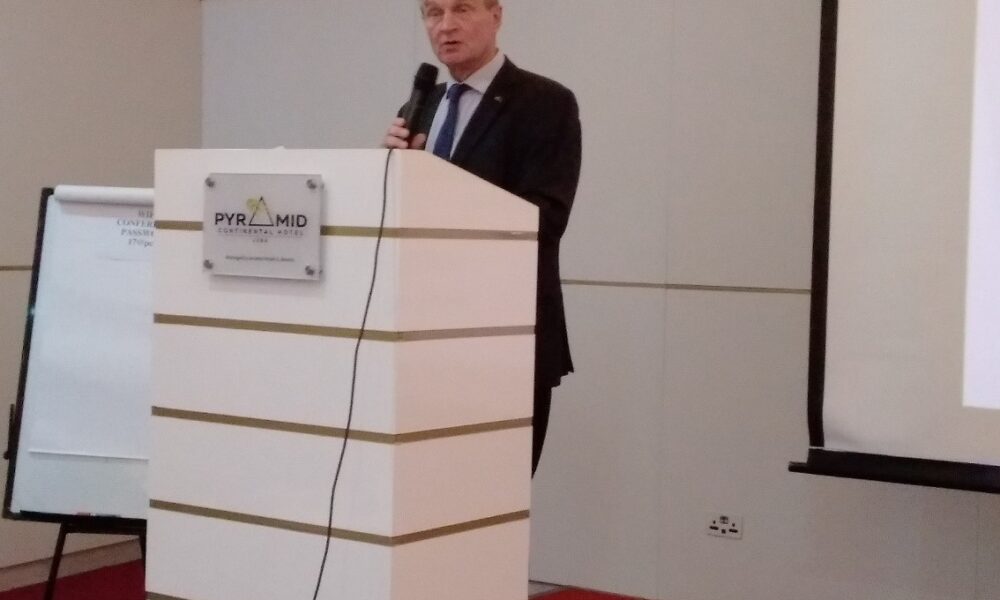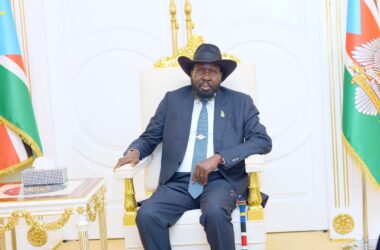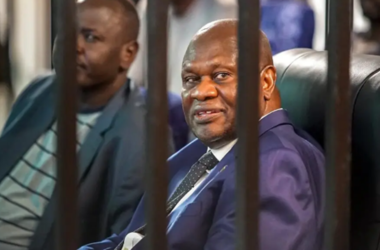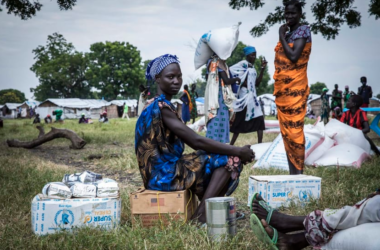By Kei Emmanuel Duku
The volatile situation in South Sudan has hampered the development, functioning, and operations of Civil Society Organizations (CSOs), particularly those engaged in advocacy, lobbying for accountability and transparency.
This assessment comes from Timo Olkkonen, the European Union Ambassador to South Sudan.
Ambassador Olkkonen made these remarks during the launch of a four-million Euro project. The initiative, which will be implemented by Mercy Corps in partnership with the Institute for the Promotion of Civil Society and EVE Women Organization for Women Development, aims to support and build the capacity of 140 CSOs across South Sudan.
“Although the country has made some progress in areas such as the rule of law and access to justice, these gains are fragile and overshadowed by on-going challenges,” Olkkonen stated. “These include insecurity, ethnic tensions, state interference, a lack of funding, and a challenging operating environment, to name but a few.”
The Ambassador noted that the current volatile situation not only impedes CSO operations but also limits their scope of influence and overall involvement in nation-building efforts. He emphasized that diverse and vibrant CSOs are essential for a budding democracy to thrive.
The EU Envoy highlighted that South Sudan ranks among the bottom 25% of countries in most democracy indices. He attributed this to the low level of democracy and poor performance across all categories of the Global State of Democracy framework.
“We call on the government to create more opportunities for civil society to engage with the various sectors of the peace agreement to ensure robust and effective outcomes,” he urged. “The role of civil society organizations (CSOs) and the sectors in which they operate must be clearly defined, ensuring their freedom of expression and operations.”
Despite the challenges confronting CSOs in the country, the EU Ambassador affirmed that the European Union will continue to support these organizations. This support will extend beyond financial means to include dialogue, technical cooperation, and upholding shared values of peace, democracy, and human rights.
The EU has long been a trusted partner of civil society in South Sudan through its development cooperation. In line with its policy, this cooperation promotes civil society independence, capacity, participation, and an open and enabling environment. These principles remain central to the EU’s current and future actions.
He urged the government to finalize the bill amending the NGO Act 2016, aligning it with the Revitalized Peace Agreement and the constitution. Once amended, this legislation will significantly aid CSOs and other sectors in their operational methods. He added that the amendment would clearly define and ensure the freedom of expression and operations for CSOs.
Meanwhile, Esther Ikere, the Undersecretary for the Ministry of Gender, Child and Social Welfare, reiterated the government’s commitment to working closely with civil society organizations through capacity building.
She stated that the government has previously collaborated with CSOs in the country to support the domestication and ratification of the Maputo Protocol, which is a crucial instrument for South Sudan. Currently, they are embarking on developing an action plan for the implementation of the Maputo Protocol.
“Strengthening the civic space is very important,” stated Ikere. “Whatever empowerment programs we are holding in the country, we need to ensure that the civic space is strengthened. This will provide an opportunity for civil society to be able to express their views and also bring on issues of transparency and accountability. If we don’t look into strengthening the civic space, then we are lagging behind in terms of advocacy.”




